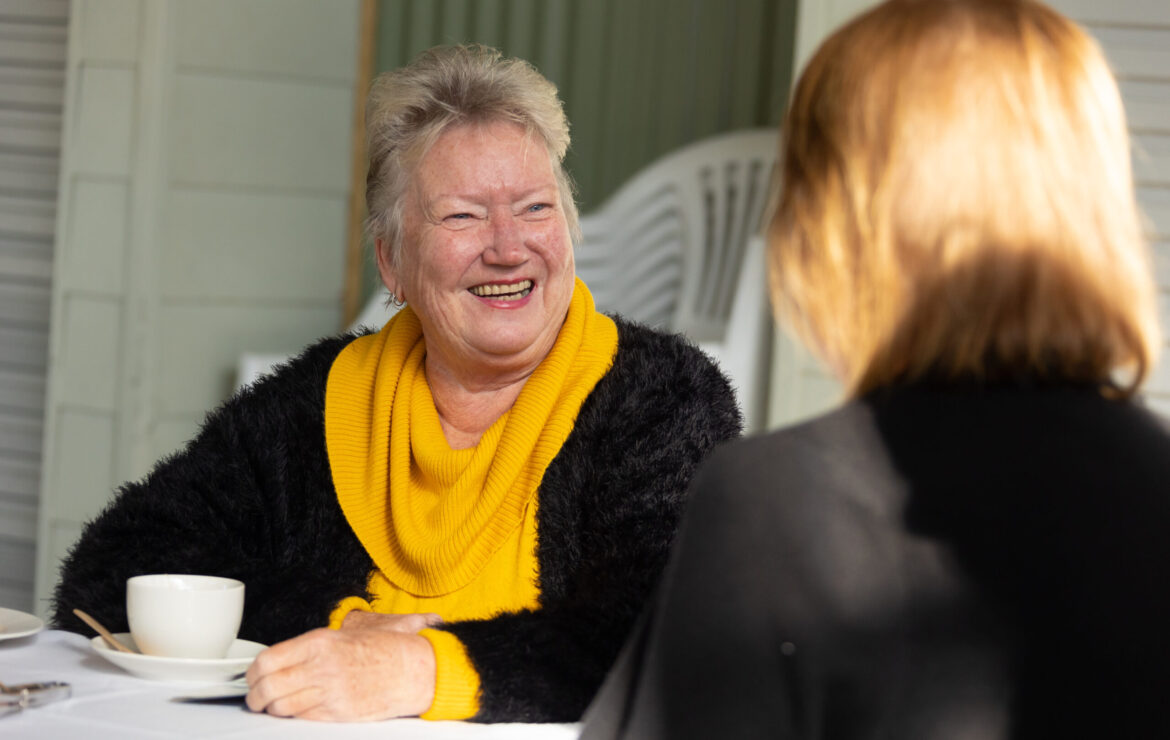What is Veterans’ Home Care?

The Veterans’ Home Care (VHC) Program provides practical help at home so you can continue to live independently.
Who can receive it?
You are eligible for an assessment if you have a:
- Veteran Gold Card
- Veteran White Card for an accepted service-related injury or condition
Carers and family members of Gold Card and White Card holders with an accepted service-related condition may be eligible for an assessment.
What you can receive
You may be able to receive:
- domestic help
- personal care
- respite care
- home and garden maintenance
Domestic help
This includes:
- internal house cleaning
- unaccompanied shopping
- bill paying
Personal care
This includes:
- showering
- toileting
- eating
Respite care
There are different types of respite care:
- In-home respite – allows a carer to have a break while another carer comes into the home to take over the caring role.
- Residential respite – provides short-term care, usually in an Australian Government-subsidised aged care facility.
- Emergency short-term home relief (ESTHR) – provides short-term care in the home when the carer is suddenly unable to provide care.
A carer may also be able to access our respite care.
Home and garden maintenance
This includes:
- replacing light bulbs
- cleaning gutters
- cleaning windows
- cleaning ceiling fans
- lawn mowing
It may include minor maintenance or repair work that can be carried out by a handyperson, to keep your home in a safe and habitable condition.
Lawn mowing can be approved without the requirement to be safety-related.
If you are getting home and garden maintenance services, you may need to pay for supplies like batteries, light globes or rubbish dumping fees.
How much you can receive
Depending on your assessed clinical needs, you may be able to receive:
- domestic help as required
- up to one and a half hours per week of personal care
- up to 196 hours of in-home respite care (can be used in combination with residential respite care)
- 28 days of residential respite care (can be used in combination with in-home respite care)
- up to 216 hours of emergency short-term home relief (ESTHR) in a financial year
- up to 15 hours of home and garden maintenance in a 12 month period
How you access
- Call a VHC Assessment Agency directly on 1300 550 450 to have an assessment for services. The assessment is usually done over the phone.
- The Assessor will talk to you about your situation at home and identify services you may need.
- The services you need will be detailed in a VHC care plan, which will be sent to you and your VHC service provider. The VHC care plan includes:
- details of what is approved
- the period of approval
- the co-payment amount
- your service provider
- your assessment agency
- The Service Provider will call you to set a suitable time to provide the services.
Once services are in place, you will be reassessed every 6 to 9 months by your VHC Assessment Agency.
Concerns about services or changing needs
- If you feel your needs have changed since your assessment, contact your VHC Assessment Agency using the number in your VHC care plan.
- If you have any concerns about the services you are getting, contact your VHC Service Provider.
How much you pay
You will be asked to pay a co-payment towards the cost of providing services.
The cost per service is $5 per hour and there is a cap on cost. The maximum co-payment for:
- Domestic Assistance is capped at $5 per week
- Personal Care is capped at $10 per week
- home and garden maintenance is capped at $75 per 12 month period
There is no co-payment for Respite Care services.
If you can’t afford the co-payments, please contact us. You may be able to apply for a waiver of your co-payment.
Things you should know
- If you have accepted conditions under MRCA or DRCA you need to be assessed for services under household services or attendant care before you are assessed for VHC services. VHC does not duplicate services that you already get under similar programs. Your VHC Assessment Agency can determine your eligibility for VHC services.
- If you are a British or Allied veteran and have a White Card, you are eligible to be assessed for respite care only.
- If you are eligible under the Veteran’s Entitlements Act 1986 (VEA) and your partner or dependents are eligible under MRCA, you are eligible to be assessed for all VHC services.
- If you are an Australian veteran and you have a White Card for an accepted service-related condition, your VHC assessment is not limited to your accepted condition.
If your loved one dies
If a veteran was receiving domestic help or home and garden maintenance when they die:
- you may be able to continue with these services for up to 12 weeks; or
- if you submit a claim for a War Widow/er’s Pension with us during the 12 week period following the death of the veteran, these services may continue until we notify the VHC Assessment Agency of the claim determination date
To continue domestic help or home and garden maintenance, if you do not submit a claim for a War Widow/er’s Pension, you need to have been living with the veteran immediately before their death, and you are:
- a spouse of the deceased veteran
- a child of the veteran
- an adult child of the veteran with a serious disability; or
- an adult child of the veteran who was a full-time carer of the veteran immediately prior to the veteran’s death
VHC rights and responsibilities
The VHC Rights and Responsibilities information sheet sets out the rights of VHC clients, including treating all parties with respect, courtesy and dignity. VHC Assessment Agencies provide this information sheet to all VHC clients along with their VHC Care Plan. The information sheet is available online:






